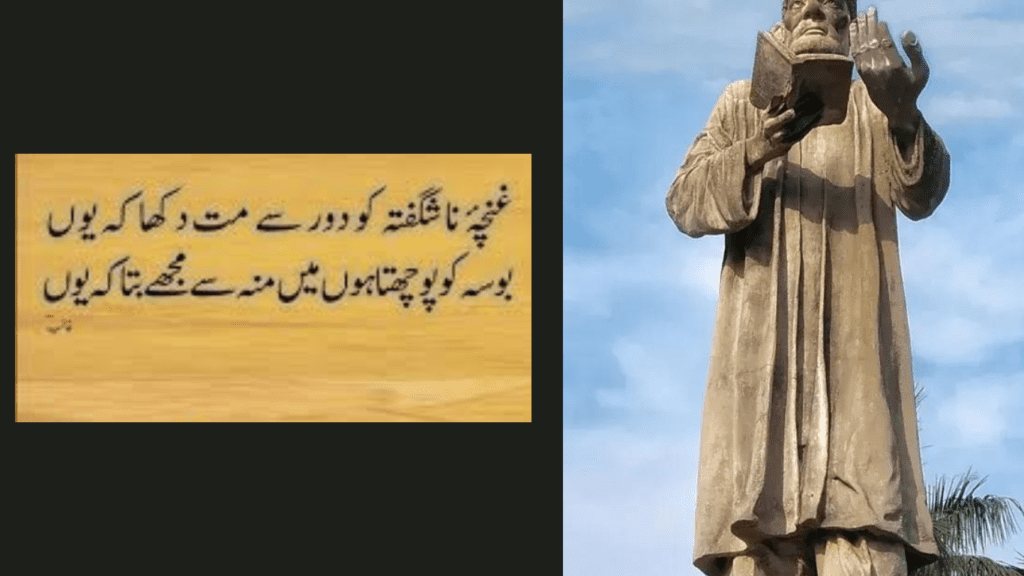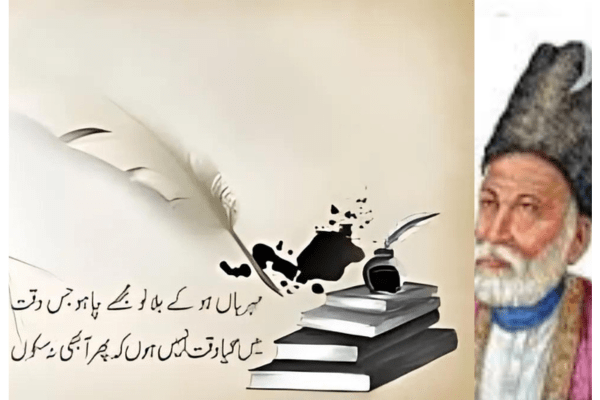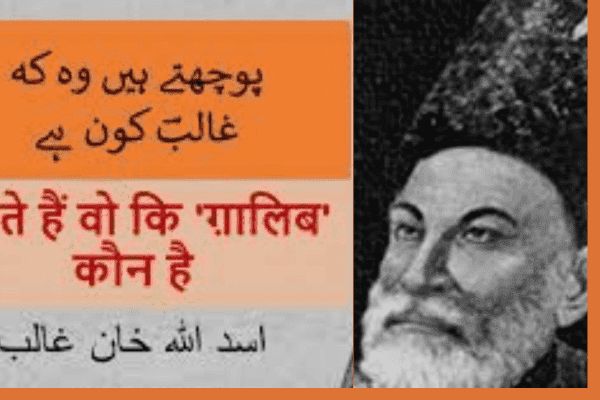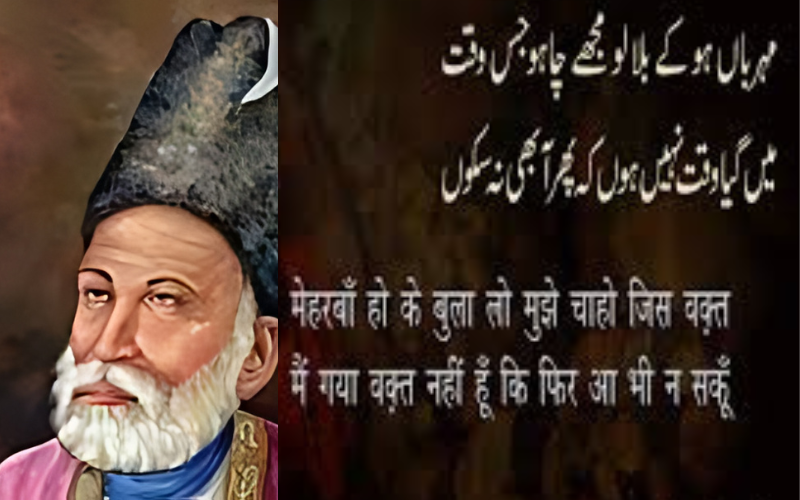Mirza Ghalib One of the most well-known and revered poets in Persian and Urdu literature, Mirza Asadullah Khan Ghalib, is still regarded as a model of literary brilliance. Ghalib, who was born in Agra in 1797, saw both the expansion of British influence in India and the fall of the Mughal Empire. Generations of poets, authors, and intellectuals have been impacted by his work, which is full of complex feelings of love, grief, and existential reflection. Human connections, life’s intricacies, spiritual contemplations, and a general sense of sorrow that penetrates every line are the main themes of Mirza Ghalib’s writing.

His ghazals, or poetry in prose, are masterworks of deep thought and exquisite language. His work is ageless and approachable throughout eras because of his sophisticated use of symbolism and metaphor to transcend even the most basic ideas.

The Depth of Love in Ghalib’s Poetry

For Ghalib, love was more than simply a transient feeling or simple infatuation; it was a complicated, often agonising experience full of longing and unmet expectations. His ghazals frequently express the anguish of being apart from a loved one, the need for a companion, and the spiritual love that has no bounds.

One of Mirza Ghalib’s well-known couplets reads as follows:
“Ishq par zor nahi, hai yeh woh aatish Ghalib, Jo lagaye na lage, aur bujhaye na bane.”

Meaning: “Love is a fire that cannot be ignited forcefully, It is such a fire, O Mirza Ghalib, that cannot be lit or extinguished at will.”
This line emphasises how love occurs organically and spontaneously, free from human intervention, perfectly capturing the erratic nature of love. Ghalib’s association of fragility with love is reflected in it, portraying love as both potent and unpredictable.
Mirza Ghalib considers the suffering that comes with love in another well-known couplet:
“Dil hi toh hai, na sang-o-khisht, dard se bhar na aaye kyun, Roenge hum hazaar baar, koi humein sataaye kyun.”
Translation: “Why shouldn’t a heart that is made of stone or brick fill with pain?
I’ll cry a thousand times over; why should I have to suffer like this?”
Translation: “Why shouldn’t a heart that is made of stone or brick fill with pain?
I’ll cry a thousand times over; why should I have to suffer like this?”
This conveys the intense emotional battle that accompanies love and supports Ghalib’s view that the heart is weak and prone to suffering. His love poems are widely resonant because they go beyond mere romance to explore the core of human pain.
Existential Questions and Spiritual Reflections
Romantic love is not the only subject matter of Ghalib’s poetry. His contemplations on life, death, and the fleeting essence of existence frequently descended into existential thoughts. His poetry reflects his depth of thought, as he wrestles with the unpredictability of the outside world and muses on the purpose of existence.
Ghalib states in one of his introspective ghazals:
“Bazeecha-e-atfal hai duniya mere aage, Hota hai shab-o-roz tamasha mere aage.”
Meaning: “The world is like a children’s playground before me, Day and night, the spectacle unfolds before my eyes.”
Here, Ghalib depicts life as a pointless game in which individuals are only characters in a grander cosmic drama. His poetry frequently addresses this pessimistic viewpoint, which emphasises how ephemeral and frequently ridiculous human existence is.
Furthermore, Ghalib frequently incorporates spiritual themes into his poetry. Despite not being a practicing Sufi, Sufi concepts of divine love, the soul’s journey, and the pursuit of connection with the Divine are all reflected in his work. He struggles with his connection with God, and his poetry frequently reflect his feelings of desire, bewilderment, and anger.
“Kaaba kis munh se jaaoge Ghalib, Sharm tumko magar nahi aati!”
Translation: “Ghalib, with what face will you approach the Kaaba?
You don’t even feel guilty!”
This couplet describes the internal struggle Ghalib experienced when thinking about his relationship with God. His poems are very personal and relevant to anybody battling with their own religion and moral issues since he often presented himself as imperfect, undeserving of salvation, and having spiritual difficulties.
Humor and Irony: The Wit of Ghalib
Even though Ghalib’s poetry is often filled with melancholy and longing, his wit and humour are equally remarkable. He frequently criticised society and brought attention to life’s absurdities by using irony and sarcasm. Ghalib stands out from other poets of his day with his distinct sense of humour, which contributes to the intellectual stimulation and emotional profundity of his poetry.
As an illustration, consider:
“Humko maloom hai jannat ki haqeeqat lekin, Dil ke khush rakhne ko Ghalib yeh khayal accha hai.”
Meaning: “I know the reality of heaven, But to keep the heart content, Ghalib, this thought is pleasant.”
This couplet illustrates Ghalib’s capacity to laugh at his own misgivings as well as his scepticism towards traditional religious ideas. His jokes frequently have deeper meanings.
The Legacy of Mirza Ghalib
Poetry of Mirza Ghalib is beyond language, culture, and time. His ghazals have been translated into many other languages, and he has had a significant impact on Persian and Urdu literature. In addition to having a profound effect on literature, Ghalib’s poetry have a profound emotional influence on anyone who have experienced love, grief, or existential desire.
Around the world, poets, authors, and readers are still motivated by Ghalib’s writing. He is a timeless poet whose legacy will live on for many years because of his ability to encapsulate the essence of human feeling in a few lines.
